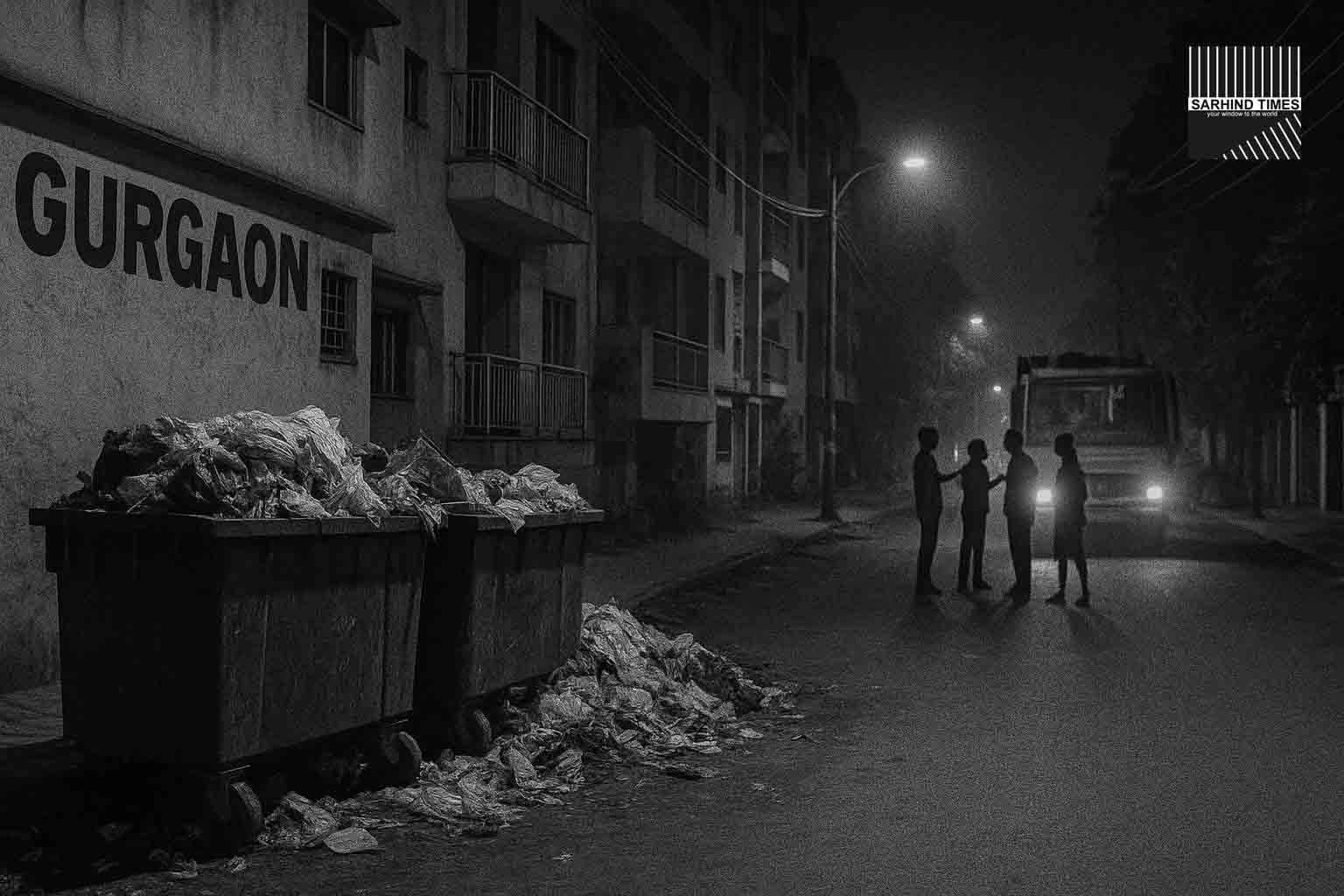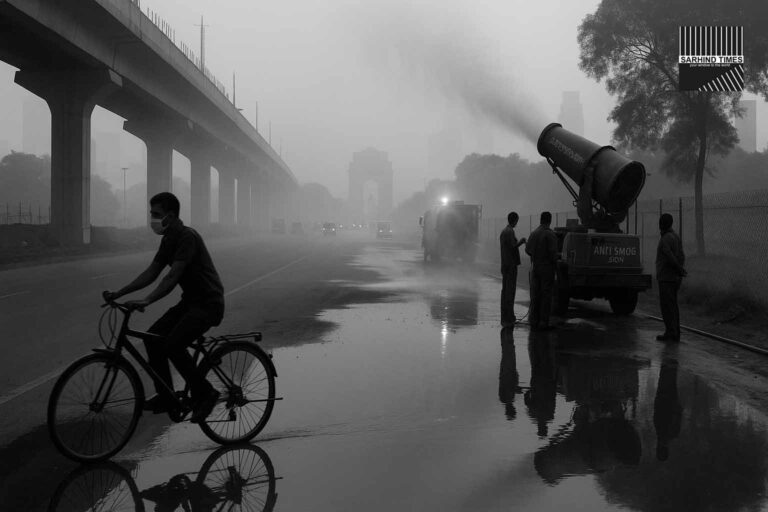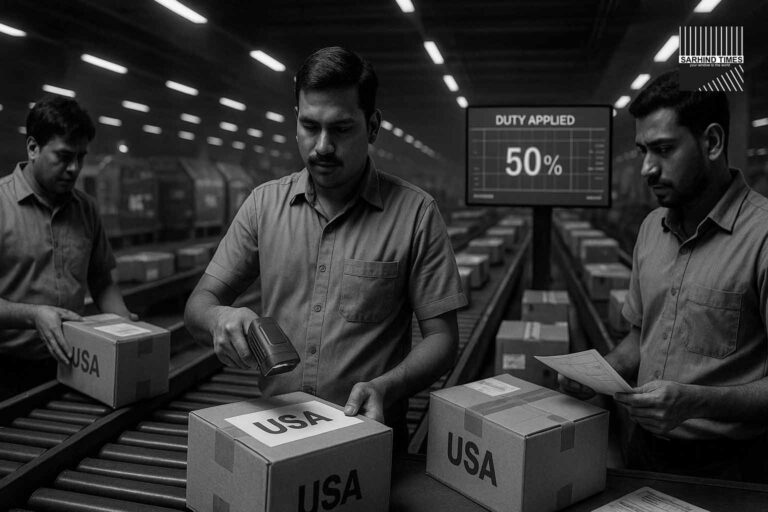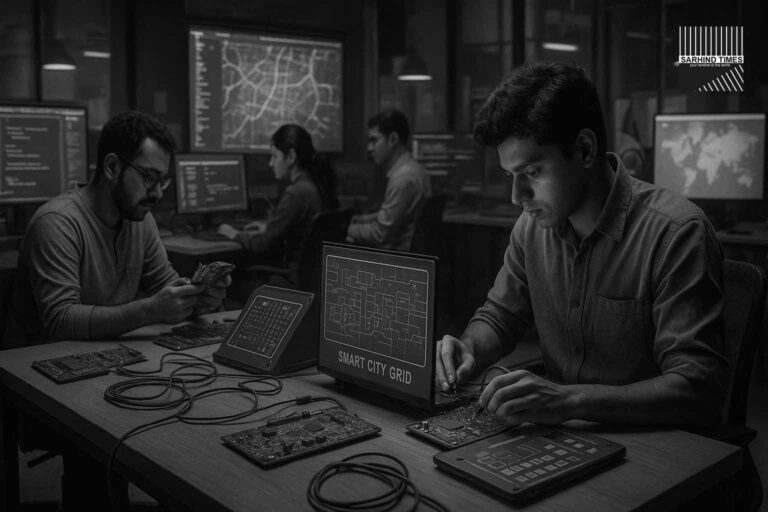Residents say the proposed solid-waste collection plan will raise costs while lowering service quality; MCG defends model as essential for efficiency and accountability.
By SarhindTimes Bureau
Gurgaon, October 2025
A New Civic Dispute Over Old Garbage Problems
A familiar battle is brewing in Gurgaon — this time over the city’s garbage bins.
Resident Welfare Associations (RWAs) across the Millennium City have raised strong objections to the Municipal Corporation of Gurugram’s (MCG) proposed solid-waste management bylaws and the accompanying request for proposal (RFP) for private collection agencies.
The dispute centers around two issues: a steep hike in user fees and new operational rules that restrict door-to-door pickup to ground floors only, effectively requiring residents in upper floors to carry their garbage downstairs.
RWAs argue that the changes penalize residents instead of improving service delivery. The MCG, however, insists that the overhaul is necessary to streamline billing, curb leakages, and align waste logistics with property-ID data for digital monitoring.
The Flashpoint: Ground-Floor Only Pickup
According to the draft bylaws, each property will be tagged with an RFID chip linked to its unique property ID, enabling contractors to record collections digitally. But in a cost-saving move, the proposal restricts the registered pickup point to the ground floor only, regardless of how many levels a residence has.
For thousands of apartments and builder floors in Gurgaon’s private colonies, this means residents living above ground level must bring their garbage down themselves — a policy many say is unworkable.
“This is absurd for senior citizens and working families,”
said RWA President Neeta Aggarwal of Sector-46.
“MCG is shifting its inefficiency to residents. Most households don’t have lifts, and expecting them to carry waste downstairs daily is unreasonable.”
RWAs have demanded all-floor tagging, arguing that each dwelling, not just each plot, should count as a serviced unit.
Fee Hike Sparks Anger
Equally controversial is the proposed user charge increase — from the current ₹100 per household to as high as ₹310 per floor for units between 200 and 500 square meters.
“Our RWA has always paid on time,” said Rajiv Mehra, General Secretary of the South City-2 association. “But this jump is threefold. Why should residents pay more for less service?”
The MCG maintains that the revision is based on updated cost-recovery models, reflecting inflation, higher diesel prices, and the transition toward segregated waste handling and GPS-tracked vehicles.
Commissioner Pradeep Dahiya defended the fee structure in a press briefing:
“The charges were last updated years ago. Waste generation per capita has increased significantly. We need sustainable revenue to maintain scientific collection and processing.”
MCG’s Stand: ‘RWAs Can Manage Waste Themselves’
Tensions rose further when MCG clarified that non-compliant RWAs — those refusing to join the centralized collection plan — may be reclassified as “bulk generators”, responsible for their own waste management, including segregation, transportation, and disposal.
“If an RWA does not wish to participate under the new framework, they are free to manage waste independently, provided they comply with the Solid Waste Management Rules, 2016,”
said Commissioner Dahiya.
The statement was perceived by resident groups as an ultimatum rather than collaboration. “It’s coercive,” said Anuradha Sharma, RWA head from Sector-14. “We pay taxes and user fees. The MCG cannot simply abdicate its responsibility because residents disagree with policy flaws.”
Citizen Concerns: Cost, Access, and Accountability
RWAs have listed several objections in their memorandum to the Commissioner’s office:
- Inequitable Fee Structure – The same per-floor rate applies to small plots and large villas, ignoring variations in occupancy and waste volume.
- Ground-Floor Limitation – Impractical for multi-story homes and elderly residents.
- Unclear Contractor Oversight – Past vendors often skipped pickups or mixed segregated waste despite payments.
- Low Penalties for Burning Waste – Fines remain nominal (₹1,000–₹5,000), failing to deter large violators.
- Lack of Transparency in Tender Process – RWAs allege that previous waste contracts lacked performance-based audits.
The MCG counters that the new GPS-based attendance system and digital complaint SLAs (Service Level Agreements) will fix many of these long-standing issues. Each collection vehicle will be tracked in real-time, and missed pickups will trigger alerts to zonal officers.
A City Choking on Its Own Success
Gurgaon’s waste problem is symptomatic of its rapid urbanization. With more than 2,500 tons of garbage generated daily, and legacy landfills at Bandhwari nearing capacity, the city’s sanitation system teeters between progress and collapse.
Despite repeated clean-city campaigns, piles of uncollected waste still dot several neighborhoods, from DLF Phase-3 to Palam Vihar. Experts warn that without structural reform, Gurgaon could face severe air and groundwater contamination.
“Landfills like Bandhwari are no longer sustainable,”
said Dr. Neeraj Bansal, environmental scientist at TERI.
“Waste must be managed at source, which means better segregation, smaller logistics loops, and consistent accountability.”
Digital Governance Push
The proposed bylaws introduce several technology-driven mechanisms:
- RFID-linked Property IDs to verify daily collection.
- GPS-enabled compactors for real-time tracking.
- Complaint dashboards with automatic escalation timelines.
- QR-code feedback stickers on bins for residents to rate service.
While civic officials argue this will enhance transparency, RWAs are skeptical.
“Technology doesn’t solve negligence,” said Vikram Bhatia, resident of Sector-56.
“Last year, GPS trucks were also introduced, yet our street saw no collection for four days after Diwali. We need reliable manpower, not just dashboards.”
Fee Debate: Balancing Cost and Service
Economists say waste collection fees in India have historically been under-priced, leading to dependence on municipal subsidies.
Raising fees could ensure better logistics, but only if service quality improves proportionately.
“Citizens will pay more if they see tangible benefits — regular collection, clean streets, and segregated disposal,”
explained Dr. Nisha Menon, urban finance expert at IIPA.
“The key is accountability, not just higher tariffs.”
RWAs propose a performance-linked model, where charges are adjusted quarterly based on service ratings. “Why should we pay full price when collection misses multiple days?” asked a resident of Sushant Lok-I.
MCG’s Broader Goal: Decentralization
Municipal officials argue the bylaw overhaul is part of a larger shift toward decentralized waste management.
Each RWA or sector society is encouraged to build small composting units for wet waste, reducing dependency on landfill disposal. The MCG has promised technical support and one-time subsidies for RWAs that adopt in-house composting.
However, resident groups say the financial and space constraints make such measures difficult for builder floors or small housing clusters.
“We’re not against segregation,” said RWA member Sunil Kaul from Sector-31.
“But not every colony can build a compost pit. The MCG must first fix collection and processing before transferring responsibility.”
The Legal Framework
The proposed bylaws derive authority from the Solid Waste Management Rules, 2016, and the Haryana Municipal Act, which permit municipalities to charge user fees and classify bulk waste generators.
Gurgaon’s earlier waste contracts under the “door-to-door collection” model suffered due to inconsistent payments, contractor disputes, and a lack of accountability mechanisms.
Officials say the new model will align MCG’s operations with national guidelines emphasizing segregation at source, user charge recovery, and scientific disposal.
“We want to create a transparent, trackable system where every truck, every property, and every complaint can be digitally verified,”
said a senior MCG official involved in drafting the policy.
Citizen Counterproposal
A consortium of RWAs under the banner “Gurugram Residents Forum” has submitted a joint proposal recommending:
- All-floor tagging rather than only ground floors.
- Flat fee per dwelling, not per floor area.
- Quarterly performance audits for contractors.
- Penalty enhancement for open waste burning.
- Independent grievance helpline monitored by residents.
They also urged the MCG to hold public consultations before finalizing the bylaws, arguing that citizen participation is crucial for compliance.
“Policy made without listening to citizens fails on day one,” said forum convener Meenakshi Talwar.
Environmental Imperatives
Environmentalists stress that the debate must not overshadow the bigger issue: reducing waste generation itself.
Plastic use in daily garbage remains alarmingly high despite bans. Non-segregation at source continues in more than half of city households. If the new bylaws succeed in enforcing segregation and recycling discipline, they could significantly ease landfill pressure.
“Behavioural change takes time, but clear systems help,”
noted Prof. R.K. Joshi of the School of Environment Management, Gurugram University.
“The new model could work if implemented with empathy and transparency — not arrogance.”
Lessons from Other Cities
Bengaluru, Indore, and Pune have all faced similar pushback during waste-fee hikes. The difference, experts say, lies in communication and trust.
Indore’s model succeeded because the municipal body involved RWAs early, maintained predictable pickup schedules, and linked citizen dashboards to incentives. Gurgaon, by contrast, has a reputation for abrupt policy rollout and weak grievance handling.
“We’re not against reform,” said RWA leader Ashok Vohra from DLF Phase-IV.
“We’re against poor consultation and one-sided decision-making.”
The Stakes: Clean City or Civic Chaos
For MCG, the stakes are high. Gurgaon’s cleanliness rankings have fluctuated sharply — slipping from the top 10 to below 30 in recent years under the Swachh Survekshan program. Officials admit that inconsistent waste logistics and low citizen satisfaction remain key reasons.
If the new bylaws fail to win acceptance, Gurgaon risks another year of civic unrest, negative rankings, and mounting landfill stress.
“Without public buy-in, even the best system fails,”
warned former IAS officer and urban policy expert S.K. Luthra.
“Garbage management is a daily social contract — not a mechanical service.”
Public Hearing Planned
Following mounting opposition, the MCG has announced plans to hold public hearings and accept written objections until October 25.
Officials say genuine feedback will be considered before final notification.
“We value citizen input. But we also have to ensure fiscal and environmental sustainability,”
said Commissioner Dahiya.
RWAs, meanwhile, have hinted at possible legal recourse if the bylaws are passed without substantial revisions.
Editorial View: Between Bureaucracy and Bins
The Gurgaon waste row reveals a deeper civic dilemma — how to reconcile modern technology and efficiency goals with the lived realities of citizens.
While digital route tracking, RFID tags, and property-linked billing may sound futuristic, they risk alienating the very people they are meant to serve if human convenience is ignored.
True reform demands collaboration, not confrontation. MCG must view RWAs not as adversaries but as partners in city management.
At the same time, residents must move beyond resistance to embrace segregation, composting, and accountability — the fundamentals of urban citizenship.
The path to a cleaner Gurgaon lies not only in bylaws but in mutual trust between government and governed.
Conclusion: A Test of Civic Maturity
As Gurgaon grows, its waste challenge will only deepen.
Whether this new policy becomes a model of participatory governance or another chapter in bureaucratic discord depends on how both sides act in the coming weeks.
In the words of one resident:
“We don’t want promises of Smart City dashboards. We just want our garbage collected — fairly, regularly, and respectfully.”
For now, the city waits — with overflowing bins and rising tempers — for a clean resolution.
#Gurgaon #WasteManagement #CivicIssues #UrbanPolicy #SWM #Environment #MCG #Haryana #CityNews #ResidentsVoice






















+ There are no comments
Add yours